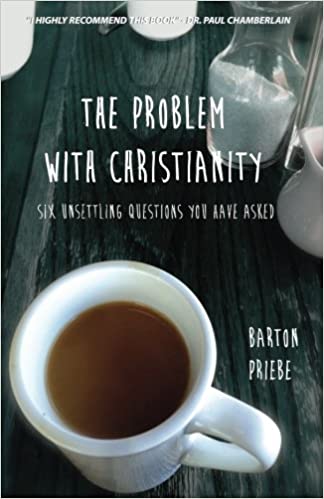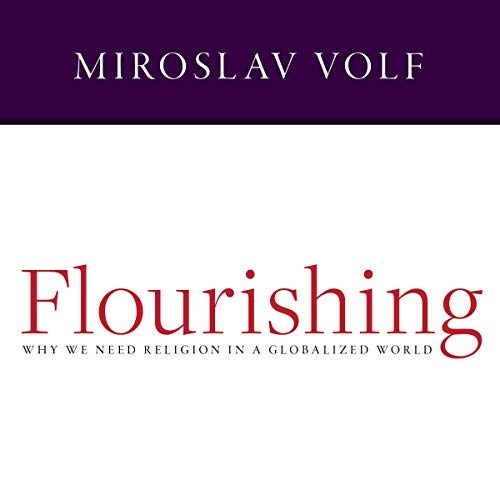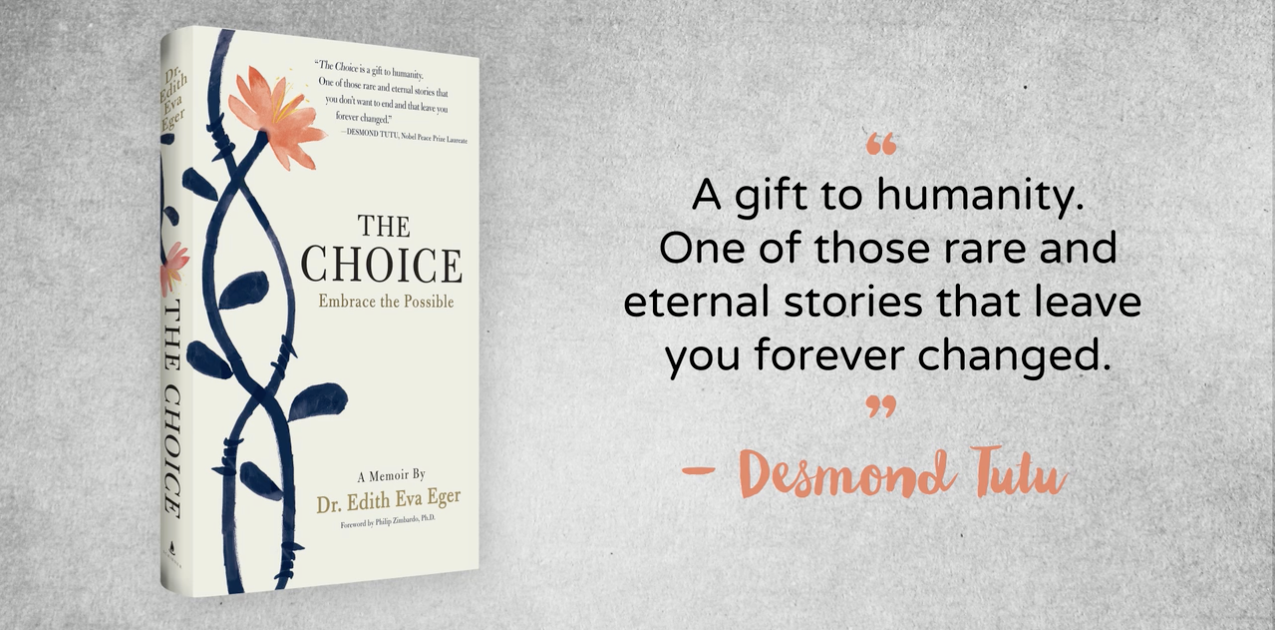What are the six questions?
- Why does God seem to be against gay people?
- Why should I believe in miracles in an age of science?
- Why should I worship a God who commanded genocide?
- How can there possibly be only one way to God?
- If God is good, why is there so much evil in the world?
- How can a loving God send people to hell
Nothing new here, these six questions or iterations of them are precisely the ones that keep cranking out people who identify as “formerly Christian.”
Below are some of the helpful bits that I want to remember from Barton Priebe’s valiant effort to plug the six holes that seem to be sinking Christian ships everywhere.
- Gay: When it comes to the gay question, the author gives us a timely reminder in our polarizing and increasingly toxic culture that to disagree is not to hate. Human sexuality is a mighty big topic, and there must be room for differences of opinion.
- Science: Science cannot answer our most basic questions, it can do a great job with the “how” questions of life, but it is useless to answer the “why” questions, which are the most important ones. Science is no saviour, and we shouldn’t pretend that it is.
- Desire: Priebe was of great assistance in confirming my contention that desire shapes our belief’s more than reason or facts ever could. Priebe quotes Thomas Nagel “I want atheism to be true…It isn’t just that I don’t believe in God…I don’t want there to be a God; I don’t want the universe to be like that.” and C.S. Lewis (before he became a Christian): “I had always wanted, above all things, not to be ‘interfered with.’ The real work of helping people change, I believe, comes with a confrontation of desire more than a confrontation of fact.
- Violent God: Regarding the violence of God in the Bible, the author attempts to smooth out the rough edges by displaying God as exceedingly patient. For example, our God who is such a fan of justice managed to patiently wait for 700 years before dropping the hammer of judgment on the Canaanites. Indeed, it is a good thing that the Biblical God doesn’t fly off the handle like other gods. I can also appreciate a God concerned about justice and even invoking at times harsh penalties for disobedience. What I can not appreciate, and what Priebe doesn’t wrestle with is that God would deputize humans to carry out his divine wrath as the genocide passages reveal. A mass slaughter of one people group by another people group from a human point of view must always wrong. The sincere cry “My God who is committed to justice told me to do it” as the blood flows freely in the streets will never work for me. Even a hint of this must be removed from the human playbook in my estimation.
Another attempt to smooth things over that fails to land is his observation that Jericho and Ai were only military installations. That means Israel would have inflicted casualties on military personnel and not civilians. The analogy given is that of tearing down the great wall of China but leaving Beijing undisturbed. This is bilge. The walled cities were places of refuge that civilian populations would have naturally run to for protection in the face of invasion. The Bible is clear that the Canaanite people were under God’s judgement not just their armies.
What I think is right and well stated was that Israel was not the big oppressor coming in, they were a ragtag bunch of former slaves who were complete underdogs. The real miracle is how these desert wanderers managed to avoid there own annihilation! Against all the odds, they carved out a tiny existence for themselves on a perpetually violent piece of real estate that sat at the crossroads of 3 continents. Also, I agree with Priebe that it’s important to realize the hyperbole in play. The great defeat and consequent slaughter of the Canaanites were markedly less impressive than some of the bravado indicates.
The Canaanites were really bad, I get that, and the book points this out with disgusting particularity. Which brings out the question at what point does one nation interfere with another nation that is really nasty. I believe, at some point, justice must trump sovereignty. Good countries must say to bad countries “stop it or else” — Is that what happened so long ago in Canaan? Perhaps at least partly, but the point is complicated to maneuver correctly in our world. Would anyone agree if a pro-life army was mobilized in the States to go to war against the great wickedness of the pro-choicers? Somehow we’ve managed to leave that judgement in God’s hands and have, I think, rightly, stuck to non-violent protests. Those who follow Jesus happily leave off any violent judgements on people to God. Ultimately what we find in the book of Joshua sits in uncomfortable tension with the teachings of Jesus. What I don’t understand, is how any ardent atheist can in good faith criticize the actions of the Jewish people so long ago. They don’t have the moral high ground to do it. Which brings me to Priebe’s strongest point in the book, and what I believe to be the most persuasive argument for continuing in the faith.
- The Moral Argument: Dawkins is amazed that molecules that make up rocks would gather themselves into chunks of rock sized matter capable of feeling, thinking and falling in love with other chunks of complex matter. To which Priebe says:
“If we are nothing more than complicated chunks of rock, it is difficult to see how our actions can be morally right or wrong. No one holds a boulder morally accountable for falling on and crushing another boulder. But we don’t believe that a man abusing a girl is simply a collision of rocks… We hold such a man to be morally accountable and yet if we live in an impersonal material universe, it is hard to see why the actions of complex rocks should be considered morally good and evil… Ultimately if there is nothing higher than human beings, than morality can only at most be a matter of opinion…Atheism, when followed to its logical end, has no categories for absolute good and evil… Atheists want to use Christian categories of universal absolutes and yet at the same time they deny that those absolutes exist.”
- Hell: This is a tough one it’s such an immensely unpopular topic. He quotes Ingersoll a 19th-century atheist.
“It there is a God who will damn his children forever, I would rather go to hell than to go to heaven and keep the society of such an infamous tyrant…I do not believe this doctrine; neither do you. If you did, you could not sleep one moment. Any man who believes it, and has within his breast a decent, throbbing heart, will go insane. A man who believes that doctrine and does not go insane has the heart of a snake and the conscience of a hyena.”
Priebe argues that the opposite of love is indifference and because God is love it is then impossible for him to be indifferent to evil and injustice, he will always be outraged and active against all wickedness. A God who cares deeply enough to be outraged about injustice is much better than one who is indifferent to it. He also leans heavy on Lewis: “Hell is locked from the inside.”
- Other:
If all we need is a teacher of enlightenment, the Buddha will do; if all we need is a collection of gods for every occasion and need, and hope, Hinduism will do; if all we need is a tribal deity, any tribal deity will do’ if all we need is a lawgiver, Moses will do; if all we need is a set of rules and a way of devotion, Muhammad or Joesph Smith will do; if all we need is inspiration and insight into the sovereign self, Oprah will do; but if we need a saviour only Jesus will do.
— Al Mohler
All of us are exclusivists — it is impossible not to be. Every time we claim something is true, we are, by definition, claiming that its opposite is false. — Don’t feel bad next time someone rips on you for being an exclusivist. We all are.





